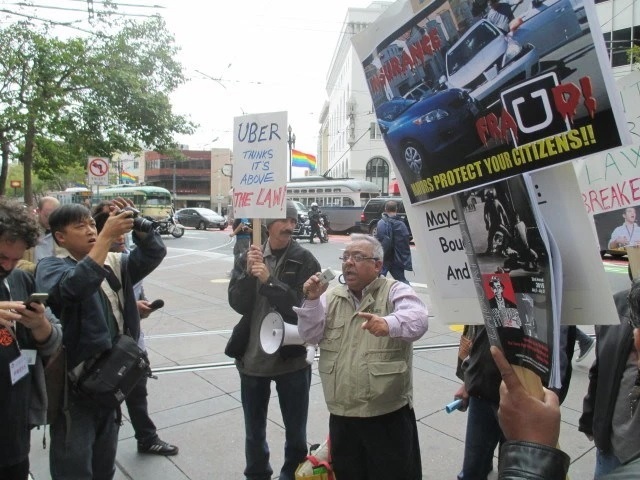The “sharing-economy” companies like Lyft, Uber, and Airbnb have managed to avoid the regulations that govern taxis and hotels largely by insisting that they are in a different business, that they are purely technology firms that just connect individuals.
But some recent news reports, mostly in the business press, suggest that, as Steve Hill points out in Salon, this Big Lie is falling apart.

Hill notes that Lyft, in its much-discussed $500 million deal with General Motors to develop self-driving cars, is also launching a program to allow people who don’t own cars to rent from Lyft and then pick up passengers for money. That’s exactly what traditional cab companies do. And since Uber is likely to follow its competitors lead, soon the “sharing” companies will be doing exactly what the regulated companies are doing – without the regulations.
Airbnb insists it’s not a hotel company, so it shouldn’t be regulated or taxed like a hotel company. But the Wall Street Journal reported in December that the company was in talks with some of the largest residential landlords in the nation to see if they can work out a deal where big apartment complexes start to become …. hotels.
Equity Residential, Avalon Bay Communities, and Camden Property Trust, the three biggest owners of residential property with a combined 240,000 apartments in the US, are discussing “a revenue-sharing model” with Airbnb, the Journal reports. (You need a subscription to see the link).
“Such a deal could place Airbnb under additional scrutiny from lawmakers by seeking to legitimize the use of apartments as hotel rooms,” the Journal reports.
The rental-company execs the Journal interviewed said they would be wary of allowing their apartments to be used full-time for transient occupancy, but the money that can be made from getting rid of long-term tenants, particularly in cities with rent control, is going to be a huge incentive.
In fact, the commercial real-estate site Bisnow is holding a conference in April that features Chip Conley, from Airbnb, talking about “partnering to put more apartments into the sharing economy,” according to a promotional email for the event that was sent to me.
So this idea that somehow the app-based hospitality and lodging sector should be treated differently from the hotel and taxi sector is becoming increasingly silly.




